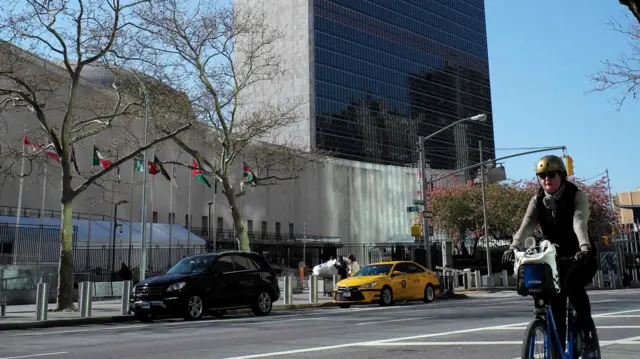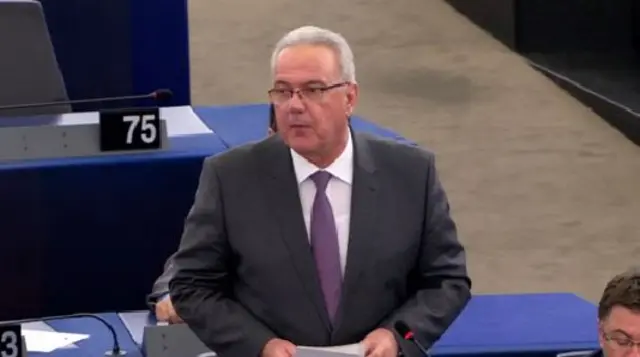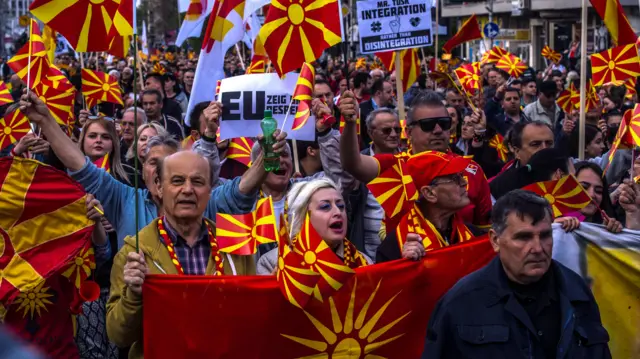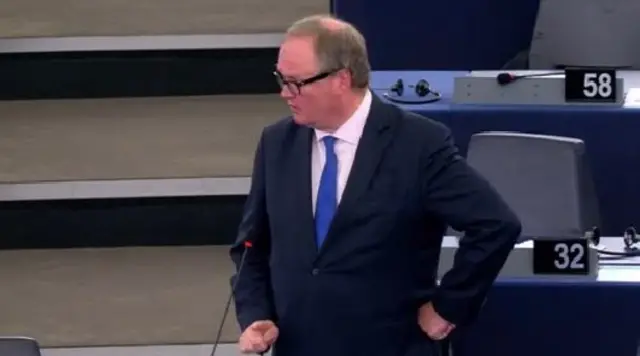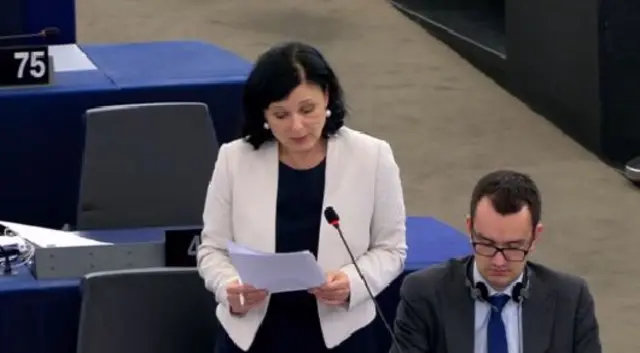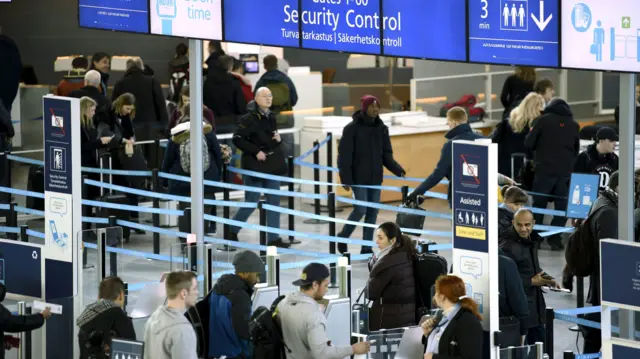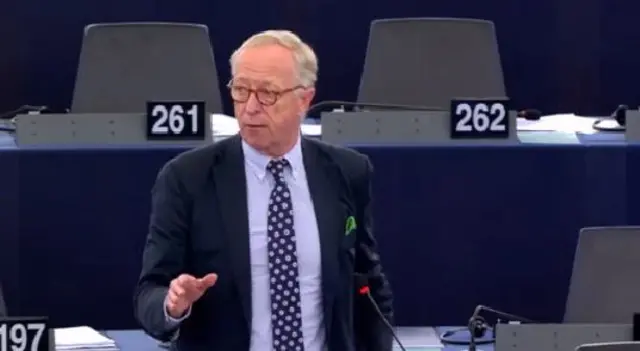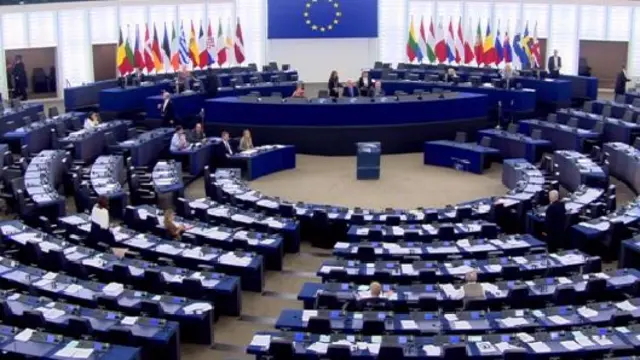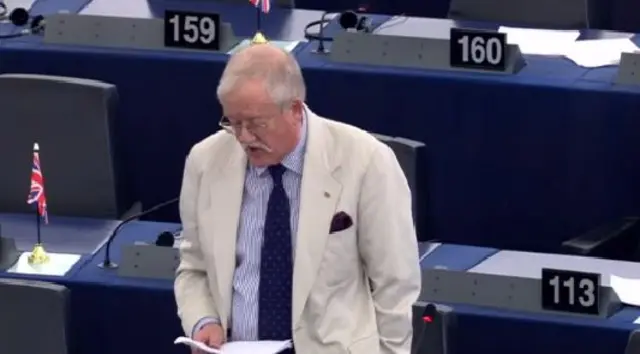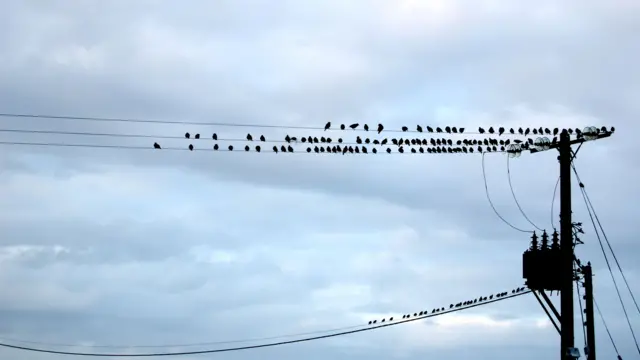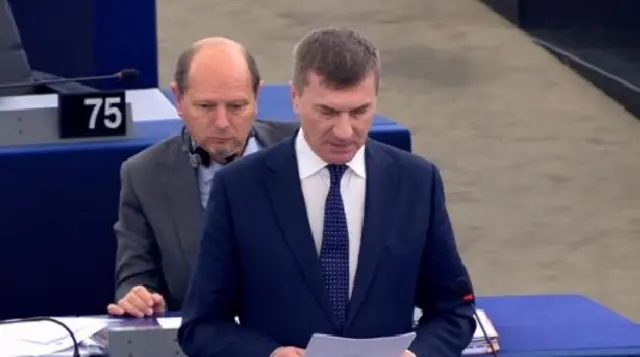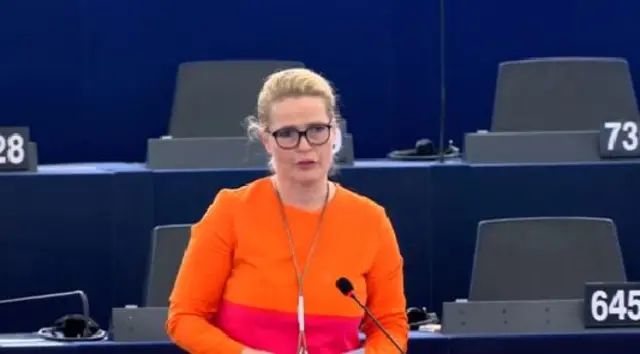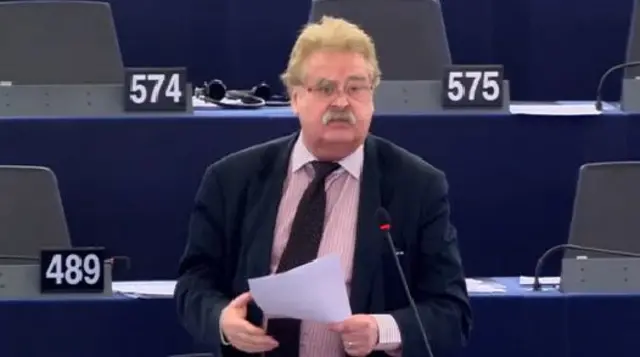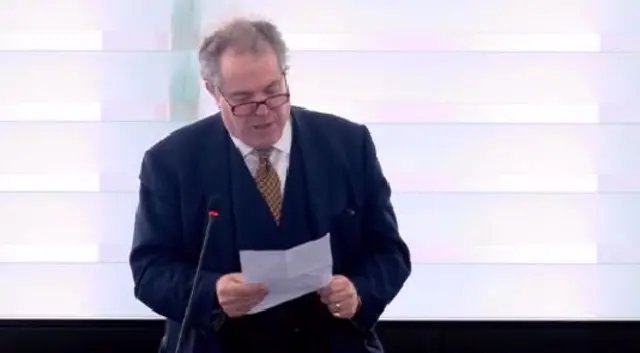Goodnight & Coming up tomorrowpublished at 22:26 BST 5 April 2017
And with that, tonight's sitting comes to a close.
MEPs will be back tomorrow from 08.00 BST, when they will debate EU efforts to tackle anti-Roma discrimination.
They will also debate and vote on three topical human rights motions.
From 11.00 BST, they will vote on whether to approve an EU visa waiver for Ukrainians.
They will also hold a final vote on an EU-wide cap on the wholesale price of mobile roaming data.
